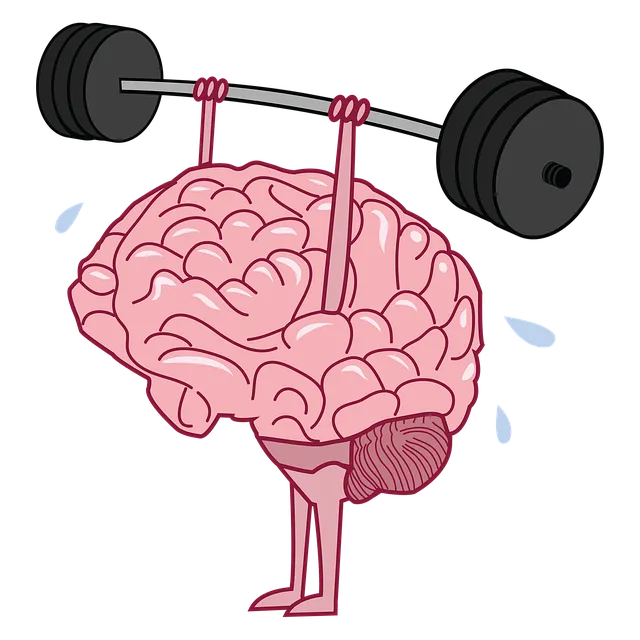Kaiser Permanente Psychiatry in Parker leads accessible mental health care through user-friendly mobile apps offering Empathy Building Strategies, Crisis Intervention Guidance, and tailored Mental Wellness Coaching Programs. These tools empower individuals to manage their mental wellness discreetly and conveniently while fostering community support. Effective app development considers diverse user needs, such as young adults under stress and professionals in high-pressure careers, with features like mood tracking, virtual therapy sessions, and peer support communities. Organizations like Kaiser Permanente integrate these apps into services, enhancing workplace cultures that prioritize employee well-being via the Kaiser Permanente psychiatry phone number Parker. Marketing strategies include targeted campaigns, collaborations with influencers, and partnerships to ensure wide accessibility.
Mental wellness apps are transforming access to psychological support, with organizations like Kaiser Permanente recognizing their potential. This article delves into the evolving landscape of mental health app development, offering insights from a Kaiser Permanente psychiatry phone number perspective. We explore target audiences, key features, development processes, and successful marketing strategies, highlighting how apps like Parker are revolutionizing mental wellness support. Discover how these innovations cater to diverse user needs and foster better mental health outcomes.
- Understanding Mental Health App Needs: A Kaiser Permanente Psychiatry Phone Number Perspective
- Target Audience and User Personas for Mental Wellness Apps
- Key Features and Functionality in Modern Mental Health Applications
- Development Process: From Concept to Launch, Overcoming Challenges
- Marketing and Engagement Strategies for Mental Wellness Apps: Parker's Example
Understanding Mental Health App Needs: A Kaiser Permanente Psychiatry Phone Number Perspective

At Kaiser Permanente Psychiatry, we recognize the growing need for accessible and effective mental health support. This understanding has driven us to explore innovative solutions, particularly through the development of mobile applications. In today’s digital age, apps offer a convenient and discreet way for individuals to manage their mental wellness. The Kaiser Permanente psychiatry phone number in Parker serves as a gateway to specialized care, where patients can access Empathy Building Strategies, Crisis Intervention Guidance, and tailored Mental Wellness Coaching Programs.
Our approach focuses on creating user-friendly interfaces that encourage engagement and foster a sense of community. By integrating evidence-based practices into app development, we aim to provide valuable resources for those seeking support. Through these digital tools, individuals can take control of their mental health journey, access timely interventions, and connect with peers in a safe and supportive environment.
Target Audience and User Personas for Mental Wellness Apps

Mental wellness apps cater to a diverse range of users, each with unique needs and challenges. Understanding the target audience is crucial for app developers aiming to create effective solutions. One key demographic includes individuals seeking alternative or supplementary support for their mental health, such as those who might not have access to traditional therapy or counseling services. This could encompass people from various walks of life, from young adults navigating college stress to professionals dealing with high-pressure careers.
User personas play a vital role in shaping app development. For instance, consider the persona of Sarah, a working mother struggling with anxiety and seeking tools for self-care routine development. She might benefit from features promoting mindfulness exercises, stress management techniques like conflict resolution strategies, and community support through online forums or peer connections. Alternatively, Alex, a young adult dealing with depression, could find value in apps offering structured mood tracking, personalized therapy sessions, and educational content on mental wellness topics. Incorporating diverse user personas, such as these represented by the Kaiser Permanente psychiatry phone number Parker, ensures that mental wellness apps cater to a broader spectrum of users, enhancing their overall effectiveness.
Key Features and Functionality in Modern Mental Health Applications

In today’s digital age, mental wellness apps have emerged as powerful tools to support individuals’ psychological well-being. Modern applications offer a range of key features designed to cater to diverse user needs and preferences. One notable aspect is the integration of artificial intelligence (AI) for personalized recommendations and adaptive therapy sessions. These apps often include mood tracking, allowing users to monitor their emotions over time and identify patterns. Additionally, they provide access to virtual therapists or coaching services, offering a convenient way to connect with mental health professionals like those available at Kaiser Permanente. The ability to schedule appointments, receive notifications, and even have secure video consultations through these platforms enhances accessibility.
Another crucial functionality is the inclusion of self-help resources such as guided meditations, mindfulness exercises, and educational content tailored to specific mental health topics. Some apps also facilitate peer support by creating communities where users can share experiences and offer encouragement. Moreover, features like risk assessment tools assist in identifying individuals at higher risk of suicide or severe mental illness, helping mental health professionals intervene promptly. Organizations can further leverage these applications through stress management workshops designed for employees, fostering a culture of mental wellness within the workplace, as evidenced by successful initiatives by companies like Parker.
Development Process: From Concept to Launch, Overcoming Challenges

The development process of a mental wellness app begins with a concept that aims to address a specific need in the field of psychiatry and psychology. It involves meticulous planning, design, coding, testing, and launch stages, ensuring the app provides accurate, evidence-based guidance for users’ mental health journeys. Overcoming challenges is crucial; these may include navigating complex healthcare regulations, integrating with existing systems like the Kaiser Permanente psychiatry phone number Parker, and developing features that cater to diverse user needs while maintaining data privacy and security.
Community Outreach Program Implementation and Public Awareness Campaigns Development are strategic components to foster app adoption and engagement. Additionally, incorporating Mental Wellness Journaling Exercise Guidance can enhance user experiences by promoting self-reflection and progress tracking. Balancing these aspects requires a thoughtful design process that prioritizes user experience, effectiveness, and accessibility for all demographics.
Marketing and Engagement Strategies for Mental Wellness Apps: Parker's Example

Marketing and engagement strategies are pivotal for the success of mental wellness apps, especially when competing for user attention in a saturated digital market. One notable example is Parker, an app developed by Kaiser Permanente’s psychiatry department. Parker offers a personalized approach to mental health support through evidence-based practices like risk assessment, conflict resolution techniques, and compassion cultivation—all accessible via a simple phone number.
To boost engagement, Parker leverages social integration features, allowing users to connect with peers and share progress anonymously. They also employ gamification elements to make the experience more interactive and enjoyable. Additionally, regular content updates, featuring expert insights and user success stories, keep the community engaged. The app’s marketing strategy includes targeted online campaigns, collaborations with mental health influencers, and partnerships with insurance providers like Kaiser Permanente, making it easily accessible via their psychiatry phone number.
Mental wellness app development is a growing field, particularly relevant in today’s digital age. By understanding user needs as highlighted by entities like Kaiser Permanente Psychiatry Phone Number and utilizing innovative features, apps can significantly impact mental health support. As shown by Parker’s successful marketing strategies, engaging users through tailored experiences and accessible platforms is key to promoting mental wellness. With careful development and targeted marketing, mental health apps have the potential to revolutionize access to care, making professional support more inclusive and effective.






